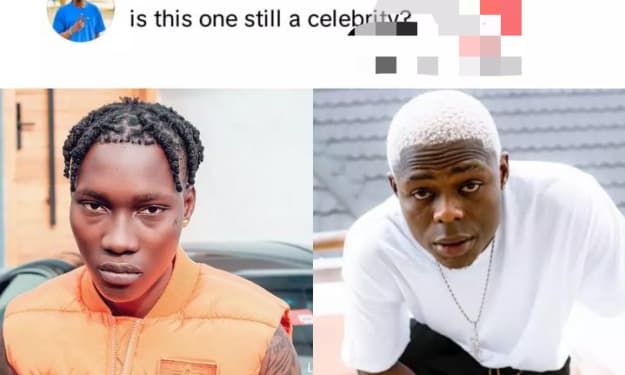The World Is Complicated
My thoughts on understanding other's perspectives

"I like to think I’m a pretty optimistic person. I’ve always tried to look on the bright side of any situation and work as hard as possible to see solutions to problems all the way through. I like the idea of being able to spread positive energy to those around me and alleviate my friend’s stress."
I wrote that line over a year ago for a college essay I never finished. In fact, those were the only lines I wrote for that essay before abandoning it completely. For the most part, I think it still holds true -- I try to be as optimistic about every situation as much as I possibly can, and I want to be able to spread that optimism to others. However, I think we can all agree that over the past year, it's been a lot harder finding much to be optimistic about. Political and racial tensions have only continued to grow, and only now are so many people realizing how naïve they've been about their own privilege. I know I've definitely been one of those people. Realizing how many systemic problems have built up over the last two and a half centuries of our country's history has only made me more aware of how little I knew about diverse perspectives. It wasn't that I didn't want to learn about those perspectives. I adore history, I adore writing, I adore art in general, and I love experiencing lesser-known art and art from other cultures. However, it took me a long time to realize that I wasn't actively getting myself involved in learning about other people's perspectives, cultural or otherwise.
A few factors caused me to learn how little I actually knew about the variety of our planet. A friend of mine that I developed a very close connection to taught me the beauty of understanding multiple sides of a situation. Whenever I had harsher things to say about something, whether it was an overexaggerated comedic jab or an actual grievance I had with a particular issue, she would give me the other side of that situation, what the other person might have thought about it. Our own differing beliefs and her willingness to work through any conflict in a respectful and understanding way allowed me to finally get out of my black-and-white pattern of thinking in a way that I never had before. I started seeing the world in more shades of gray than ever before, in over eight billion differing perspectives in which every single person thinks at least slightly differently from another based on their own personal experiences.
Even before this, though, I'd struggled to see in shades of gray when it came to my love of art. I would sometimes feel uncomfortable with the idea that I liked music from a problematic musician or a movie from a problematic filmmaker. Did liking that art mean that I supported what they did? No, of course it didn't, it's art, it has nothing to do with the person who made it, anyone can interpret it how they want, that's the beauty of artistic expression. But I was still consuming art from someone with a problematic past? How problematic is too problematic? When should you set a boundary from certain artists for their behavior? Honestly, I still don't have the complete answer to this question. It's something I've grappled with for years now, but I believe my overall attitude is that for the most part, I'll separate the art from the artist regardless of the circumstances. However, if certain circumstances are SO uncomfortable for me that the idea of even consuming it makes me physically ill, I avoid it. Maybe I'll come back to it another time, maybe I won't, but at least in that moment, it's something I don't feel comfortable with.
Finally, I would say one of the most recent contributors to my understanding of differing perspectives is my college education, particularly this last semester. Taking a modern American history class in conjunction with a writing and rhetoric class, I was able to understand the various perspectives of American history throughout the decades and learned the definition of rhetoric in an argumentative context. This latter point changed the game for me entirely. It's literally the title of a textbook our teacher wanted us to read for class: Everything is an Argument. Understanding that rhetoric essentially means conflict with another person made me recognize that every single piece of art, every single piece of information, every single friendly interaction you have with someone, even every single piece of science is a form of argument, is a form of rhetoric for a particular cause. With over eight billion people in the world who each have their own views on what is right and wrong, even on the smallest of issues, how in the world can we all agree on everything? We can't. It's impossible.
My primary mentality over the last few months has been to respect human rights. Respect the rights of everyone, even those you think are doing something completely morally wrong. Punish those who devalue others for simply being who they are, but find a way to do it in a way that doesn't shove them into the ground, either. There are certain actions that are absolutely unforgivable, absolutely, but that doesn't mean we have to openly attack them. With the advent of social media today, it feels like almost everything than anyone could say has the potential to receive intense backlash. In part, I completely understand those reactions. I grew up thinking in a completely black-and-white way: this is right, this is wrong, this is good, this is bad, this is cool, this is stupid. Now, thanks to my ever-growing interest in learning whatever I can about the world and what I can do to leave it as a more accepting place for literally every single human being, I don't think I can see in black and white anymore. The shades of grey in every single human being are so complicated that it can be hard to make heads or tails of everything there is out there to experience. I guess for me, though, the one basic truth I still like to believe is still optimistic. I like to believe in the inherent good of everyone. Whether or not they choose to use that inherent good is their own personal choice, but in a world where there are so many different perspectives out there, I think it's important to understand as many as you possibly can, even if in the end, you don't agree with them.





Comments
There are no comments for this story
Be the first to respond and start the conversation.